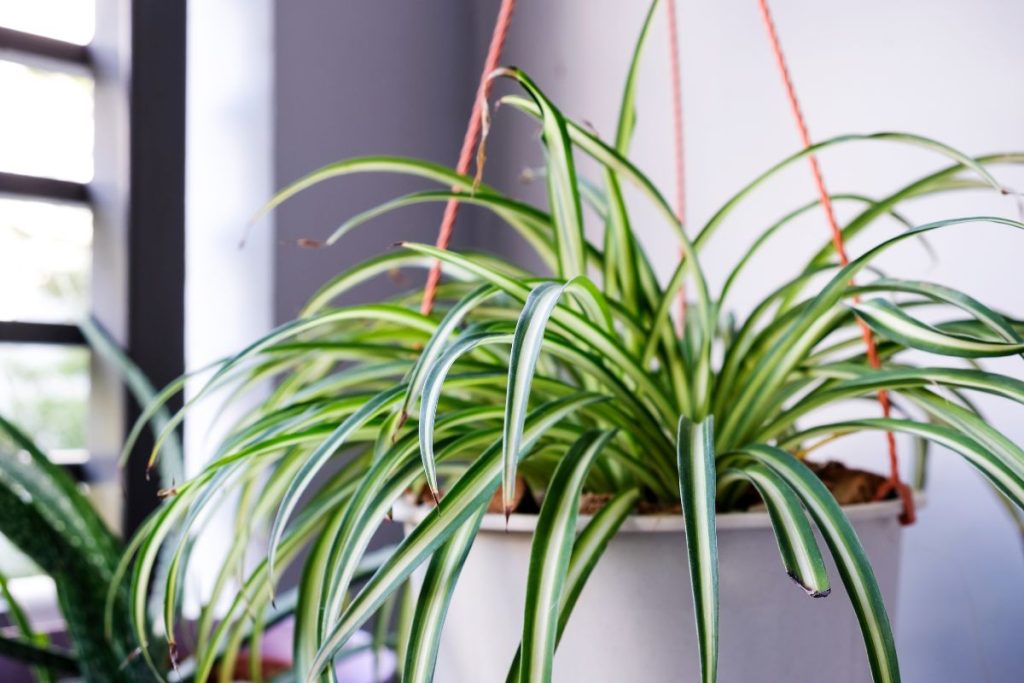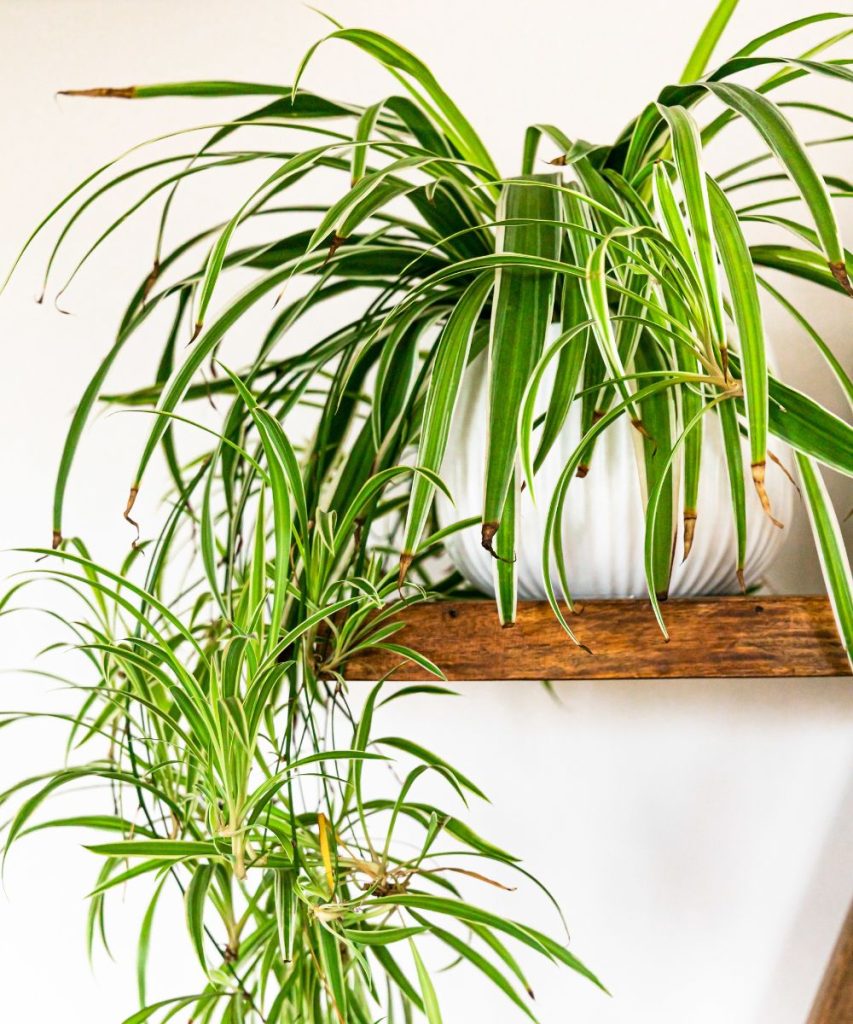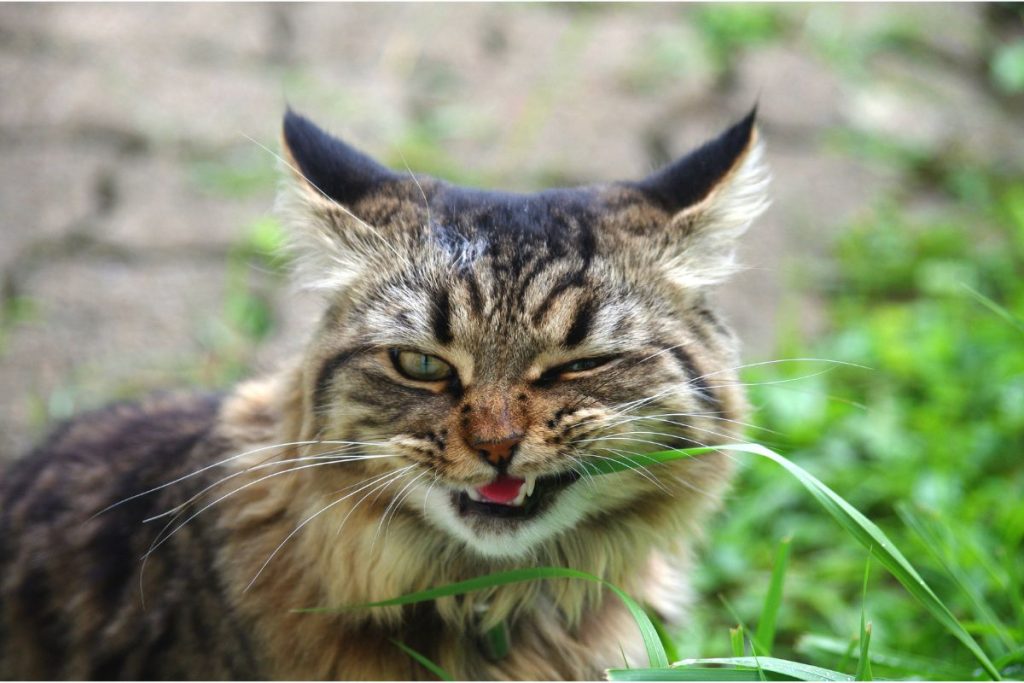We all know cats are curious creatures, and if you’re a cat owner, you’ve likely wondered about the safety of having certain plants around your feline friend. One plant that often catches their attention is the charming spider plant, with its dangling leaves that seem irresistible to cats. But before you worry or consider getting rid of your beloved plant, let’s explore whether spider plants can actually harm our curious companions.
In this blog, we will delve into the topic, addressing whether spider plants are toxic to cats, what to do if your cat has nibbled on one, and how to protect your plant and your furry friend. Welcome to the world where plants and cats intertwine!

Contents
Are Spider Plants Toxic To Cats?
You may be wondering if spider plants are toxic to cats. The good news is that the answer is no, these plants are not dangerous for cats. Spider plants are non-toxic and safe for your furry friend. While they don’t have any adverse effects on cats, it’s important to keep in mind that anything can cause an upset stomach from time to time.
If your cat has a habit of chewing on or eating leaves, then it’s best to keep them away from your spider plant so they won’t get sick. It’s also worth noting that some cats may be allergic to the sap of this plant, so it’s always a good idea to monitor their reaction if you bring one into the house. All in all, spider plants offer no real risks when kept around cats – just make sure you don’t let them eat too much!
Why Do Cats Like Spider Plants?

They’re known for being attractive to felines. Spider plants, also known as Chlorophytum comosum, are naturally derived from tropical regions of Africa and have been used as indoor plants since the mid-19th century. It’s easy to see why cats like spider plants – their foliage is made up of long thin leaves that are full of texture and movement! The plant also offers a variety of colors, ranging from bright greens to deep purples.
As an added bonus, spider plants are generally considered safe for cats when ingested. However, it’s important to monitor your cat’s behavior when they are around this type of plant in case it causes any discomfort or irritation. If you notice any signs of distress stop contact with the plant immediately and consult with your veterinarian for further advice.
What To Do If My Cat Has Eaten A Spider Plant

If your cat has eaten a spider plant, it is important to monitor their behavior closely for any signs of distress. Spider plants can be toxic for cats if ingested, so you should watch for any unusual behaviors such as vomiting, lethargy, or lack of appetite. If you notice any of these symptoms, contact your vet immediately and take the plant with you to show them what your cat has been eating.
Additionally, make sure that the spider plant is kept in an area where your cat can’t access it to avoid further ingestion. Lastly, keep an eye on your pet’s water consumption; if they are drinking more than usual it could be a sign of dehydration. In this case, seek medical attention right away. Taking these steps will help ensure the safety of your beloved feline companion and provide peace of mind in knowing that they haven’t been harmed by the spider plant.
How To Cat-Proof Your Spider Plant
To keep your cat safe, it’s important to cat-proof your spider plant. Make sure the plant is placed in an area that’s difficult to access, like on top of a high shelf or cabinet. If you have a table or counter where the plant normally sits, cover it with a cloth or plastic sheeting to make it inaccessible. You should also consider using a misting system to spray the leaves periodically with water; this will make them taste unpleasant and deter cats from chewing on them. Finally, always supervise your cat when they’re near the spider plant so that you can intervene quickly if they attempt to nibble on the leaves.
Conclusion
You’ve heard the rumors, but are spider plants really toxic to cats? The truth is, they can be poisonous if eaten in large amounts. But as long as you keep an eye on your cat and make sure it doesn’t eat too much of your plant, you don’t have to worry. If you’re worried that your cat has eaten a spider plant, take it to the vet right away for treatment. To prevent any potential problems, consider cat-proofing your spider plant by placing it out of reach or using a hanging basket. Knowing the facts can help you keep your pet safe while still enjoying the beauty of this unique houseplant!
